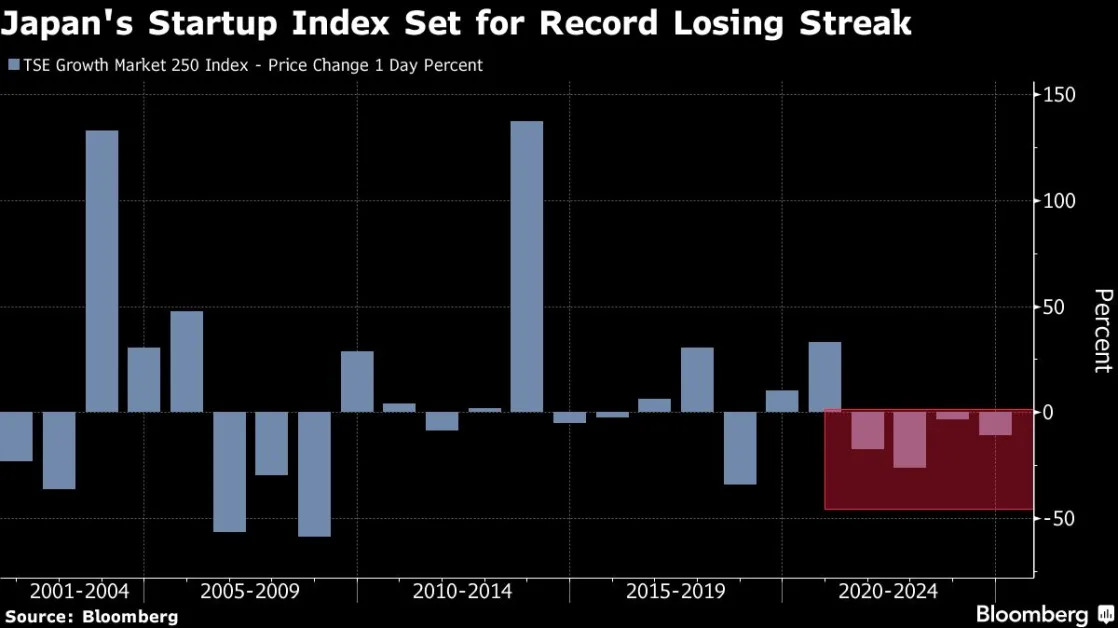(Bloomberg) -- A gauge of Japan’s startup stocks is headed for its longest run of annual losses on record as the threat of higher interest rates adds to a list of issues keeping some investors away from the sector.
The Tokyo Stock Exchange Growth Market 250 Index, formerly known as the Mothers Index, is down about 11% so far this year and set for its fourth yearly loss, the longest slump for Bloomberg-compiled data going back to 2000. In contrast, the broader Topix has gained 15% as banks and life insurers rose on anticipation their earnings will benefit from higher borrowing costs.
The downtrend for startups could continue as the Bank of Japan seeks to hike interest rates, making it more expensive for new companies to finance research and development. The yen’s recent slump to a five-month low against the dollar has also shifted attention toward Japan’s exporters and away from startups, which mainly consist of companies that rely on domestic revenue.
While startups are subject to economic trends, the sector’s structural issues also make them less popular with investors. For example, in desperation to get financing, many startups rush to go public without a proper long-term growth strategy, said Naoya Kawai, chief investment officer at asset management firm Fundnote. IPOs are sometimes their only option, as few investors are willing to pour money in late-stage startups, he said.
“We’re still seeing companies that just prioritize going public over growth,” said Ikuo Mitsui, a fund manager at Aizawa Securities Co. in Tokyo, adding that startups face low liquidity, small market value and poor profitability. “Only a handful of companies are investing in their business to accelerate growth.”
These issues have dragged down the trading volume of the Growth 250 index to an 11-year low relative to the overall market as the index’s earnings per share has remained negative since 2019, according to data compiled by Bloomberg. The number of liquid names for startups is also lower than the blue-chip market, Japan Exchange Group Inc. data show.
That is not to say there aren’t any attractive startups in Japan. Baillie Gifford & Co.’s Praveen Kumar says there’s so-called alpha, or outperformance, to be found in growth stocks with low valuations.
One of his top picks is online insurer Lifenet Insurance Co., which has soared 59% so far this year. The company has a scalable business model that targets the younger generation, and is led by young management, according to Kumar. The stock’s price-to-book ratio is around 1.6 times, compared with its peak of about 9 times in 2020.
“The upside can be absolutely massive,” he said. “There’s a next generation of fast growing businesses that are currently trading at such low valuations.”
But for the broader sector, cheap valuations may not be enough to attract investors ahead of the BOJ’s impending rate hike next year. There is about a 50% chance the central bank will hike next month and an 80% probability by March, according to overnight index swaps.
“Higher interest rates should pressure emerging companies that have weak financial fundamentals,” said Hideyuki Ishiguro, chief strategist at Nomura Asset Management. “If there is no growth story after listing, the investment won’t be sustainable.”


